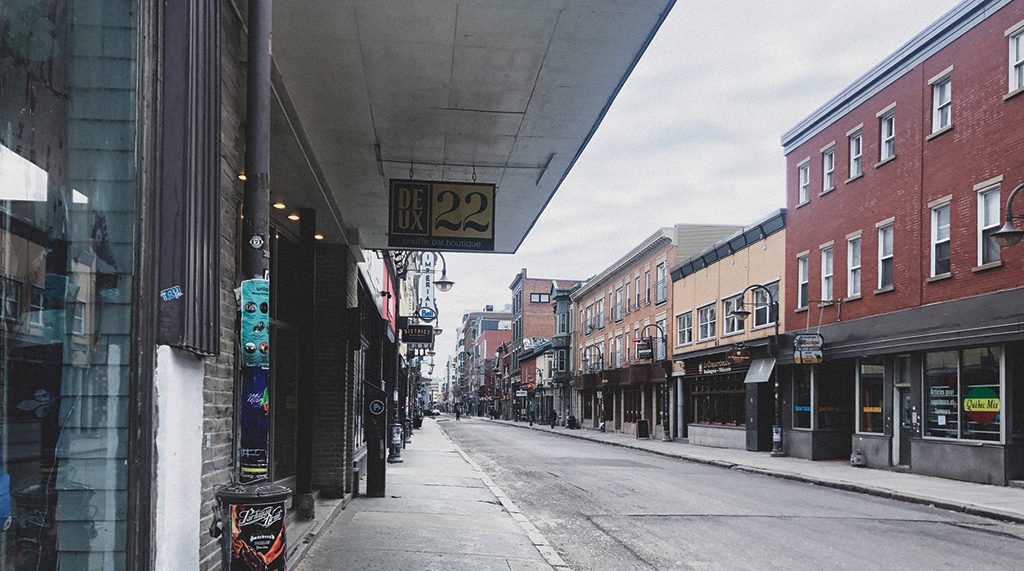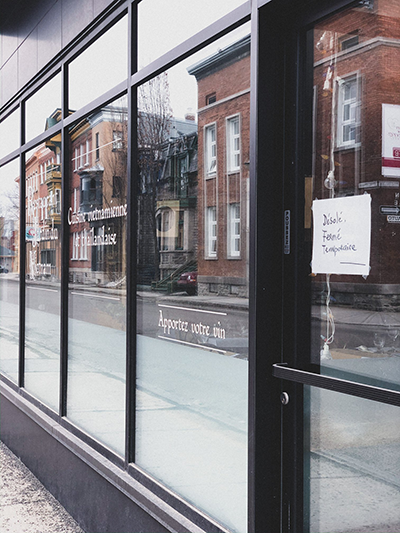
April 5, 2020
Temporary migrant workers in hospitality are badly hit by the COVID-19 crisis
Report written by
Danièle Bélanger (Chairholder)
Charles Fleury (researcher associated with the Chair and associate researcher in the Industrial Relations department)
Capucine Coustere (PhD candidate)
Capucine’s research focuses on the effect of macrosocial events on life courses in migration.
As part of a Chair’s research project, we conducted in-depth interviews with 23 temporary residents working in hospitality in the Quebec region during the summer of 2019. Most of them had temporary work permits and some had student permits allowing them to work part-time. At the time, the sector was in full employment and constantly looking for labour. We were interested in four dimensions of their life course: migration, profession, family, and formation.
Hospitality workers are being hit badly by the COVID-19 healthcare crisis we are experiencing. During the past two weeks, we conducted a (distanced) follow-up interview with each of them to better understand how the situation is affecting them. They generously shared the stories of what has happened to them since their interview in the summer of 2019. We identified three points standing out from this ethnography of crisis.

1. An exacerbated twofold precarity
Most of the participants were still working in a hotel or restaurant when services were reduced or shut down. Almost all of them have been laid off and are self-isolating at home like the rest of the population. Some who had a closed-work permit (allowing them to work for a specific employer only) would like to look for new employment in a high demand industry (grocery, delivery), but their type of work permit does not allow it. For those with a student permit allowing them to work, the immediate loss of a vital income is adding to the stress of completing their studies. Some are also not eligible for the emergency aid offered by the state. Whether they are workers or students, temporary residents are often alone in Quebec, without any safety net to face the situation, and some have family members living abroad who depend on them financially. Others are in the process of renewing their residence or work permits and are worried about losing their migratory status due to the administrative delays caused by the COVID-19 crisis.
2. Resilient workers
Despite experiencing great hardships, the people we met showed high resilience. They had an eagerness to resume working, whether at their previous job or a new one, and to fully contribute to the future recovery. It is also worth noting that, however self-isolated, the participants continued making plans for the future and were often providing remote support to their loved ones here and in their country of origin. These people greatly appreciated being in Quebec/Canada during the crisis where they felt safe. Returning home was hardly conceivable for various reasons: a settled life in Quebec, an ongoing application process for permanent residency, a need to complete their studies, a partner met in Quebec, lack of available accommodation in their country of origin, fear of contracting COVID-19 while travelling home, and fear of transmitting the virus to their loved ones. A sentence keeps coming up: “My life is in Quebec!”.
 3. A substantial lack of information on their rights
3. A substantial lack of information on their rights
Finally, these interviews served as an opportunity to provide participants with information on their rights to unemployment and social assistance, since there were almost no specific sources informing them. A special thank you to Capucine who closely followed the eligibility requirements for various emergency aid programmes and informed the participants accordingly.
A scientific article on this ethnography of crisis is in preparation by the Chair team.

